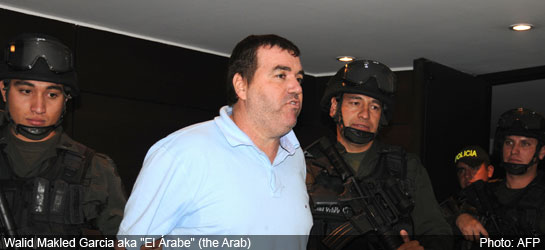
Colombia’s interior and justice minister, German Vargas Lleras, has said that Venezuela has not sent guarantees that alleged narco-kingpin Walid Makled’s human rights will be protected if he is extradited to Venezuela, Caracol reported Thursday.
“We require the guarantees of respect for human rights and the document has not arrived,” said Vargas Lleras, who assured that once the required documents are received, Colombia will begin the extradition process planned for Friday May 6.
The Venezuelan prosecutor general, Luisa Ortega Diaz, meanwhile insisted that Makled’s arrival “does not depend on Venezuela but on Colombia,” claiming that her government had already offered assurances regarding the human rights of Makled and that he will not receive capital punishment, reported TeleSUR.
The Venezuelan drug lord was the subject of a diplomatic tug of war between his home country and the United States, who both sought his extradition, until on April 6 Colombian President Juan Manuel Santos announced the decision to grant the extradition request to Venezuela.
U.S. authorities believe that Makled might have information implicating Hugo Chavez’s inner circle of drug trafficking connections and heavily contested his extradition back to Venezuela for fear that he will be silenced by the Chavez government.
Makled is accused by the DEA of cooperating with the FARC to distribute cocaine to the United States, with the alleged drug lord also admitting to having connections to Venezuela’s political and military elite.
Makled has said however that he will only divulge information on these connections to U.S. investigators if he is extradited to the United States, although U.S. agents have been permitted to interview him in the weeks since his extradition destination was announced.

